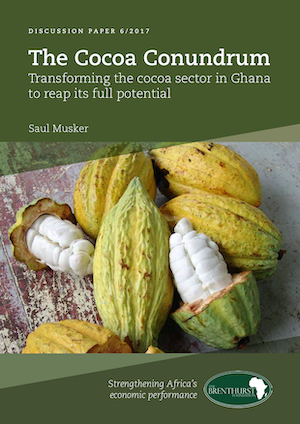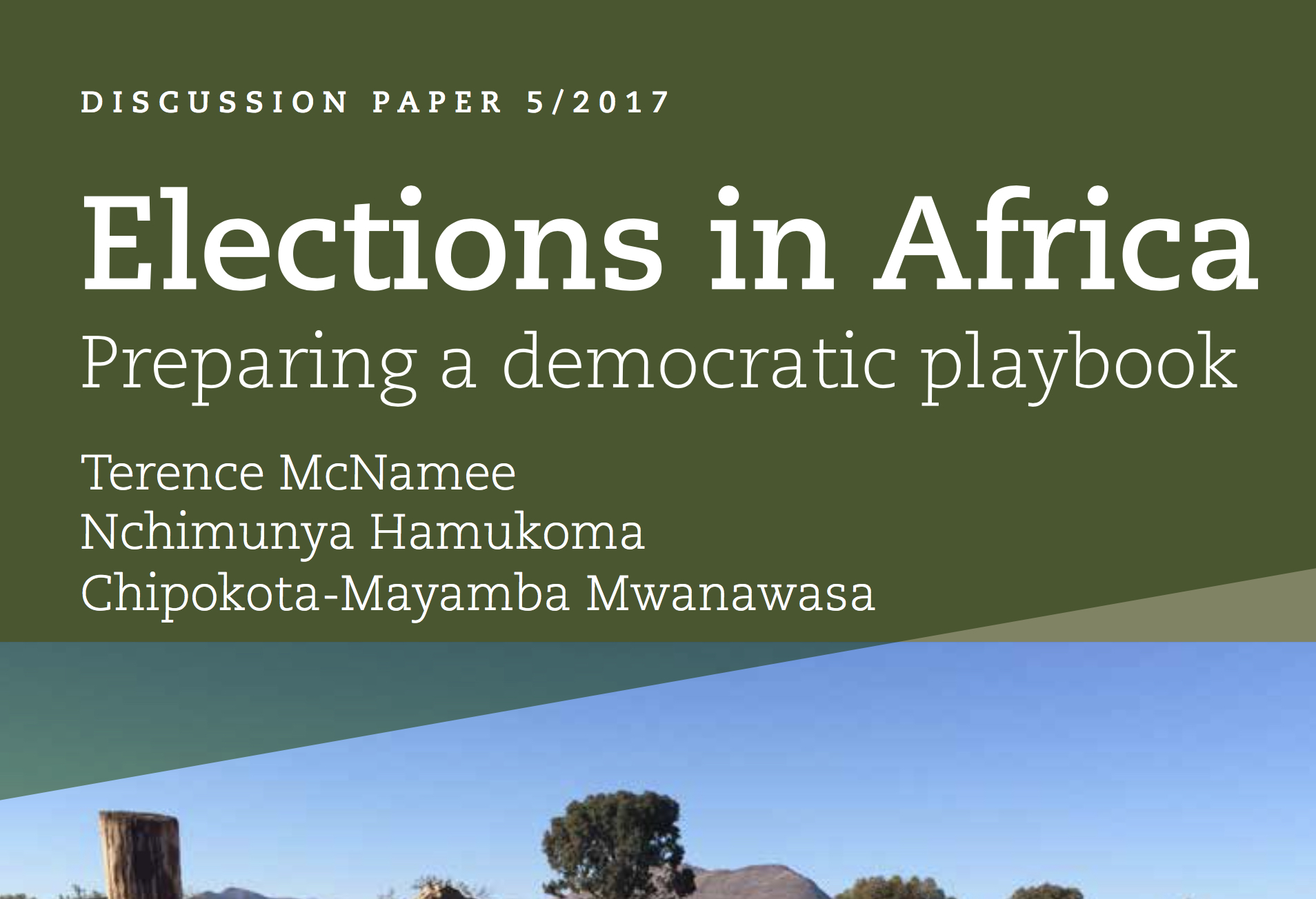Publications
The Cocoa Conundrum: Transforming the cocoa sector in Ghana to reap its full potential
Literally translated, the Latin term for cocoa – Theobroma – means ‘food of the gods’. Indeed, cocoa (or cacao, as it is commonly known in raw form) has assumed a god-like quality in Ghana and Côte d’Ivoire, with the power to dictate the lives of almost two million farmers and make or break national economies. Nonetheless, despite together supplying over two-thirds of the world’s cocoa beans, neither country has yet succeeded in converting its abundance of the crop into prosperity for its people.
This Discussion Paper argues that a series of bold, yet careful, interventions in the cocoa sector could achieve these outcomes, and provide a significant boost to the national economy. Key to this effort is a clear diagnosis of the impediments to growth and a creative set of solutions to tackle them. To that end, the first section of this paper describes the effect of recent reforms on the Ivoirian cocoa sector, while a second section turns to the situation in Ghana. A third and final section charts a path forward, taking into account what Ghana might learn from the experience of its neighbour. Given the recent crisis triggered by a decline in the price of cocoa on the world market, it is more urgent than ever that both countries should re-examine their policy in the sector.
The author of the Discussion Paper, Saul Musker, was the Machel-Mandela Fellow at the Brenthurst Foundation in the first half of 2017 and is now a Rhodes Scholar studying at the University of Oxford.



